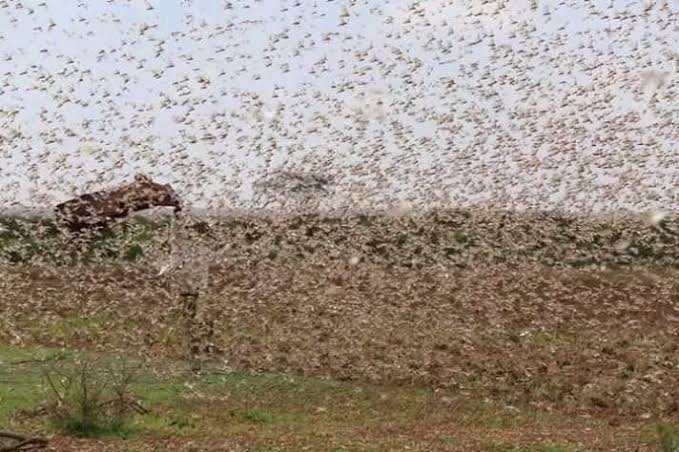We may joke about the locust problem but it is far from over. The desert locust is here to stay and there is little the governments can do about it.
The locusts have already affected Kenya, Somalia and Ethiopia and are said to be headed for Uganda next. The three governments have put in all they have to contain the deadly insects but no permanent solution has been arrived at so far.
In fact, the United Nations predicts that the desert locust will multiply in numbers. The current weather conditions in East Africa is favourable for locusts breeding. The cropping season is fast approaching and the locusts are only but warming up for it.
The desert locust, which has not been seen in Kenya for over 70 years, is said to have bred in high numbers due to ecological conditions that are favourable for their breeding. Unusual weather and climate conditions have contributed to the spread, including heavy and widespread rains since October 2019.
With the deserts locust likely to extend its stay in East Africa, high agricultural losses are to be expected this year. So far, the deadly insects have not directly affected humans as they have mainly devoured livestock pasture. Reports indicate that over 180,000 pastoral families have been affected so far.
Looming Food Insecurity
The planting season is approaching and farmers will be sowing in their quest to improve food security in the country. However, this would also mean increased food security for the desert locust.
If the government fails to completely eliminate the desert locust, then food security will definitely plummet in 2020.
According to the Food Security and Nutrition Working Group’s (FSNWG) most recent update, the East Africa region is already experiencing a high degree of food insecurity, with over 19 million people coping with high levels of hunger.
Under a worst-case scenario, where the current locust upsurge is not quickly contained and becomes a plague by the next main cropping season, significant crop and pasture losses would cause food security in affected areas to worsen further.
See Also>> Pest Control Law Amidst Locust Infestation Rattles Scientists, Growers
The governments of the three countries affected are working together to solve the problem but can only provide so much help. Both the Kenyan and the Ethiopian governments have each given out two aircraft to help contain the insects.
This is an addition to the already deployed four aircraft from the IGAD Climate Prediction and Application Centre (ICPAC).
However, according to experts, the aircraft are not enough or the requisite type to eradicate the locust problem completely. Dr Stephen Njoka, the Director-General for Desert Locust Control Organization, says that five special pesticide-spraying aircraft are needed for the job. One of these aircraft goes for $2.5 billion.
The resources East Africa possesses is far from enough of what is needed to contain desert locust let alone completely eradicating them.
Immature swarms are continuing to arrive in the North-Eastern part of the country throughout the Northern and Central areas. Some swarms have started to lay eggs that will hatch in early February and new swarms could start to form by early April in northern counties. The locusts are only but warming up.
The desert locust has already affected 13 counties in Kenya with more counties expected to be affected.













Leave a comment